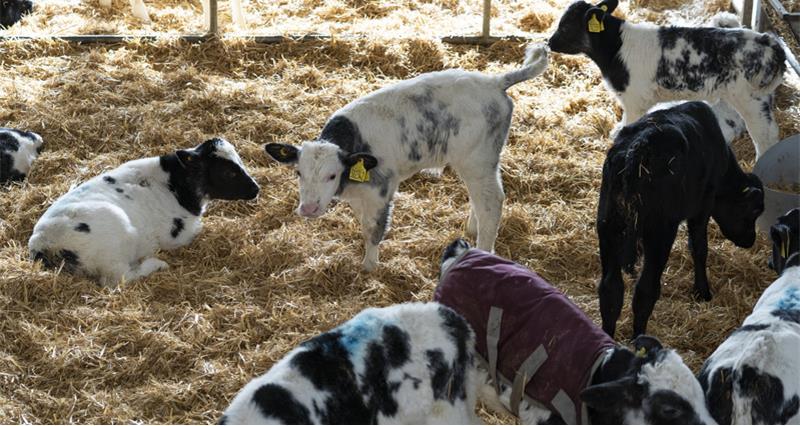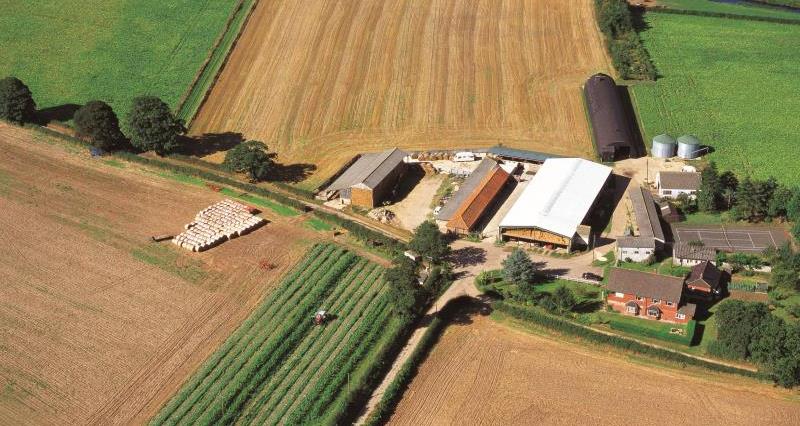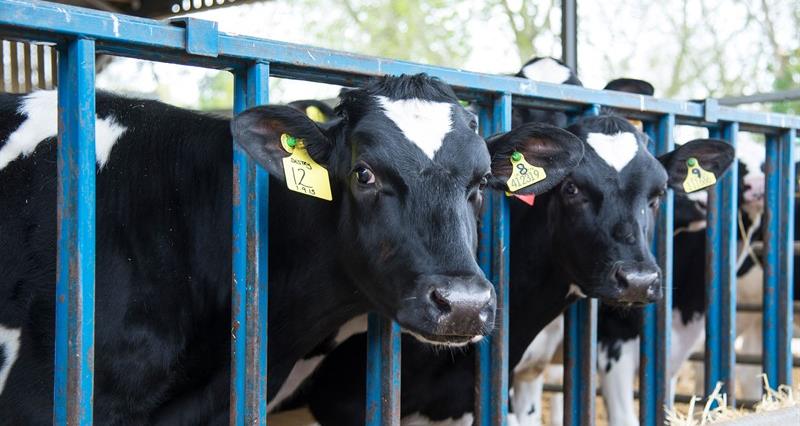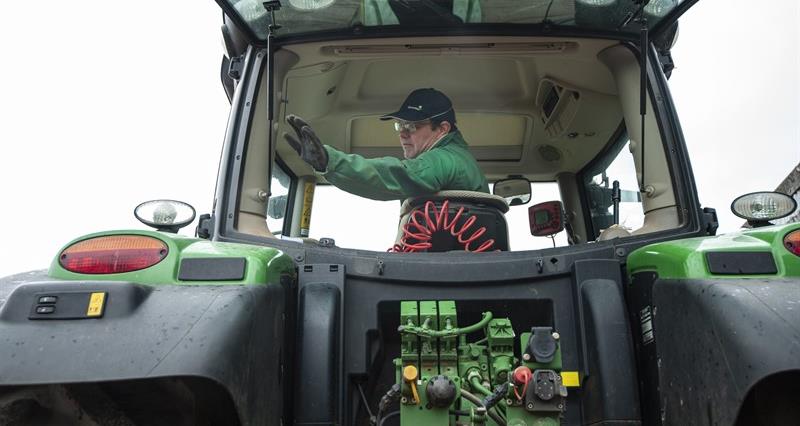The government's calf housing for health and welfare grant has a budget of £10m and is aimed at boosting calf health and welfare, enhance environmental sustainability and introduce innovation. These are all the priorities of the grant which a project will be assessed against.
The grant can help build new, upgrade, or replace, existing calf housing buildings to deliver health and welfare benefits for a farmer’s calves.
Calf housing funded through the grant must provide a good ambient environment and facilitate social contact through pair or group housing. There are also more specific elements such as the provision for any project to provide temporary isolation for sick calves to minimise the spread of disease.
It is strongly encouraged, before submitting any applications, to carefully consider the guidance and associated specification for this scheme to ensure your proposal has the best chance of success.
Basic eligibility criteria and eligible costs
Existing cattle farmers in England carrying out farming activity, including calf rearing, with 11 or more cattle were able to apply. Any buildings you build or upgrade with money from the grant must be located in England.
You must either own the land you're building on, or have a tenancy agreement for the land until 5 years after the project is complete if your current agreement ends earlier than 5 years after the project's completion. Please check the full guidance.
There is more detail on land tenure matters, what is an eligible build and what is not in the specifications section of the guidance. This also includes information on the funded provision of solar PV (photovoltaic) panels, as well as what other costs are eligible and which are not.
There is also an opportunity, in certain situations, to use the grant funding to buy second-hand items.
If you buy an item for the project using lease purchase or hire purchase, you need to own it outright before you can claim any grant money towards it. Find out more at: GOV.UK | When you can claim payment.
Grant contribution details
The minimum grant you were able to apply for was £15,000 (40% of £37,500). The maximum grant was £500,000 per applicant business. Defra has said the minimum grant amount does not include costs associated with rooftop solar PV panels.
Grants cover up to a maximum rate of 40% of the eligible costs of a project. If you're including rooftop solar PV panels as part of your project, the RPA will only fund the purchase and installation of these up to 25% of the eligible costs.
As with other Defra grants of this nature, you need to be able to fund the project costs before any grant funds are released (you can make a maximum of three claims over the course of the project against eligible expenditure). Please read the guidance carefully on funding rules.
It is important to note that if you wish to increase the size of your herd as part of your project, the amount of funding you can receive will be decided pro rata based on your calf numbers from the previous year. The RPA will fund 40% of the eligible costs that accommodate calf numbers consistent from the previous year.
Equally important to note, is that you must not start work, commit to any costs (including paying deposits), enter into any legal contracts, or place an order until an project has been successful via the application process and has a start date. This date will be on the grant funding agreement.
NFU Energy Help
If you’re considering solar PV panels as part of your project, NFU Energy offers access to leading renewable energy installers, finance and insurance. The team can support you at every stage of your renewables journey, from installer introductions to providing ongoing assistance to ensure everything happens smoothly. Learn more at: NFU Energy | Renewable energy solutions
Vet consultation
In contrast to other large Defra grants, applicants had to discuss their project with a vet in order to apply, and include a letter of confirmation with the full application if successful during the initial application stage.
Defra suggests that you can apply for an Animal Health and Welfare Review through Defra’s Animal Health and Welfare Pathway to help with this requirement. More details can be found at: SFI annual health and welfare review.
Making your application
You will need to follow a three-stage application process. The basic elements of this are set out below. The grant is administered by the RPA and is competitive, so your application will be scored against the funding priorities.
If the application is eligible and scores highly enough, the RPA will offer the successful farmer a GFA (Grant Funding Agreement).
The application process for the grant has three stages:
- Stage 1: Online checker
- Stage 2: Ambient Environment Assessment
- Stage 3: Full application
Stage 1 – Online checker
The RPA online checker closed on 30 November. This was the first step in making an initial online application.
This will check if you're eligible to apply and how well the project fits the funding priorities. The government's guidance gives a list of the information you need to have ready before you start.
Decisions were communicated in early January and those successful were invited to begin Stage 2 of the process.
Stage 2 – Ambient environment assessment
If you're eligible to apply, and the project scores well enough against the funding priorities at stage one, the RPA will send you an Ambient Environment Assessment form to complete. The assessment form will need a range of details including:
- the building site
- exposure to wind and shelter
- proximity to areas used by adult cattle
- plans detailing building dimensions and aspects of the design.
This is used to tell the RPA details of the design and specification of the proposed calf housing project. The RPA will assess your details to check that the proposed housing will be able to maintain a suitable ambient environment for the calves housed within it.
Read about the requirements and recommendations in the Ambient environment section of the scheme’s grant specifications guidance. There is specific guidance for sheltered, semi-sheltered and exposed locations for cattle housing and what each area requires.
If your calf housing building plans do not meet the standard requirements and recommendations, the RPA may request additional information and share this information with third party experts in calf housing for further assessment.
The deadline for the Ambient Assessment forms was 30 April.
Stage 3 – Full application
If your ambient environment assessment details are satisfactory, the RPA will invite you to make a full application by sending out the application forms. These need to be completed and emailed with supporting documents, to the RPA at: FTF@rpa.gov.uk.
It is important to note that the full application should be for the same project that was put forward in stages one and two. What Defra mean by this is that the main details of the project should not be significantly different to the initial online application. If there are any significant changes to the online application, then you need to contact the RPA before putting in a full application.
The deadline for full applications was 30 April 2025.
Further guidance on submitting a full application can be found at: GOV.UK | How to submit a calf housing for health and welfare grant.
Post full application submission
If your project is still eligible for a grant at the full application stage, the RPA will assess the application based on criteria set out in the guidance.
The RPA aims to give a decision on a full application within 60 working days from receipt of a complete full application.
If offered a grant, the RPA will send a GFA for signing and return. This will set out the legal terms and conditions of the grant. Any changes in the GFA over the course of the project must be approved by the RPA, if not this could end the agreement and reclaim any grant that has already been paid.
Finally, to improve national data and future funding rounds, Defra will ask successful applicants to take part in evaluation and learning activities.



